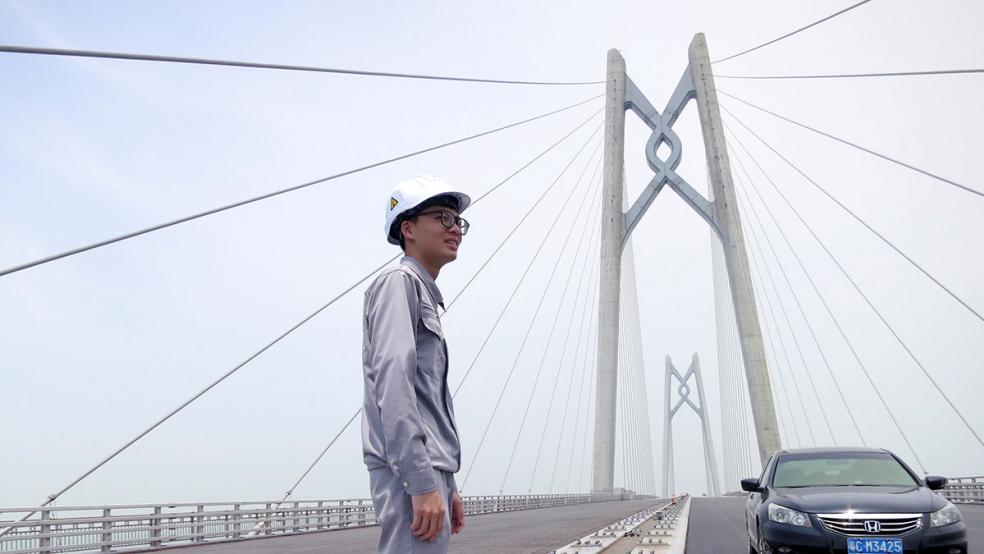While most of the world wonders nervously what’s next from the Trump White House, the confident China President Xi Jinping is shifting his bid for global leadership into a full-court press.
Xi’s hugely ambitious leadership program includes joining Asia to the Middle East, Africa, and Europe with his “Belt and Road” project, moving quickly on climate change, calling the shots on the North Korea crisis, repairing up-and-down ties in Europe, promoting the renminbi as a reserve currency, enticing Southeast Asia to accept its presence in the South China Sea, and negotiating a peace deal between Pakistan and Afghanistan. Xi and his top ministers are pushing the Chinese case.
Related: China Steps in to Fill the US Leadership Vacuum
There’s a right way and a wrong way to understand China’s drive.
China wants recognition and commensurate influence as the world’s No. 2 economy, a nation as “indispensable” as any other in the 21st century. For the Chinese, who recall the Opium Wars’ humiliations as if they were yesterday, equality and respect at the global table are non-negotiable.
It’s a mistake to assume China’s intention is to revive old imperial arrangements—a ridiculous idea on the face of it—or assume the kind of global preeminence the U.S. has exercised since 1945. “Time’s up, go home” isn’t Beijing’s message. “Move over, make room” is.
Xi effectively unveiled his drive for global influence when he delivered his first speech to the World Economic Forum in Davos earlier this year, three days before Trump’s inauguration. Xi pointedly cast himself as a defender of globalization, free trade, and global targets to combat climate change.
Since then, Xi and his ministers have been on a tear.
Related: Why China May Be Headed for a Massive Bank Bailout
When Chancellor Merkel defended the Paris Agreement in Berlin two days after Trump’s withdrawal, Chinese Premier Li Keqiang stood by her side to declare that China, too, “stayed true to its commitment.” The message from both leaders was plain: We’re reliable friends even if the U.S. isn’t around.
A week later, China and the European Union drew substantially closer during a two-day summit in Brussels. Trade, counter-terrorism, cyber-security, and diplomatic coordination on North Korea were all on the table. While there were tensions on trade questions, the two sides concluded a long-negotiated agreement under which China will now invest $2.2 billion in European infrastructure.
It’s about momentum. On Tuesday, the European Central Bank announced that it had shifted $558 million into renminbi assets, adding the Chinese currency to its portfolio for the first time. It’s peanuts in the ECB’s $76 billion reserve accounts, but the symbolic gesture is lost on no one.
Across the Pacific, China is busy making friends and partners out of neighbors once nervous about its buildup in the South China Sea. Thailand and Malaysia recently signed military sales agreements with Chinese defense contractors — in the Thai case to replace old U.S. equipment.
The Philippines is close to its own defense deal. Both Malaysia and the Philippines recently agreed to resolve maritime and sovereignty disputes in bilateral talks with the Chinese—effectively an abandonment of the U.S. position on the South China Sea issue.
Related: In Pakistan, China Presses Built-In Advantage for 'Silk Road' Contracts
Nothing illustrates China’s ambitious drive to take its place as a global leader more dramatically than Xi’s “Belt and Road” project. A Marshall Plan on steroids is a good way to think of it. Belt and Road is a multi-trillion-dollar program to build ports, railways, highways, power grids, and whatever else is needed to create land and sea routes linking East Asia westward all the way to Britain.
When Xi held the first Belt and Road summit in Beijing last month, roughly 30 heads of state, plus the heads of the IMF and World Bank, were on hand. Trump misread the moment, just as Barack Obama completely missed it when Xi announced the Asian Infrastructure Investment Bank two years ago, only to watch the world enthusiastically endorse the plan as the U.S. stood aside.
Brian Klass, a fellow at the London School of Economics and author of The Despot’s Accomplice, said on MSN’s Morning Joe Thursday that China is trying to take advantage of the U.S. leadership void. Their state media has said explicitly that Donald Trump is proof that democracy doesn’t work, and they can use our dysfunctional society and say, “turn to us, turn to China because it’s in your best interests,” Klass said.
Until the last minute, Trump’s White House was going to reward a campaign operative from Iowa with a trip to Beijing to attend the summit, which it viewed as unimportant. Trump switched to Matt Pottinger, the Asia man on Trump’s National Security Council.
It was an improvement, but not enough of one. There are a lot of ways to respond to China’s leap onto the global stage. Making believe it isn’t there ranks near the bottom on the list.






